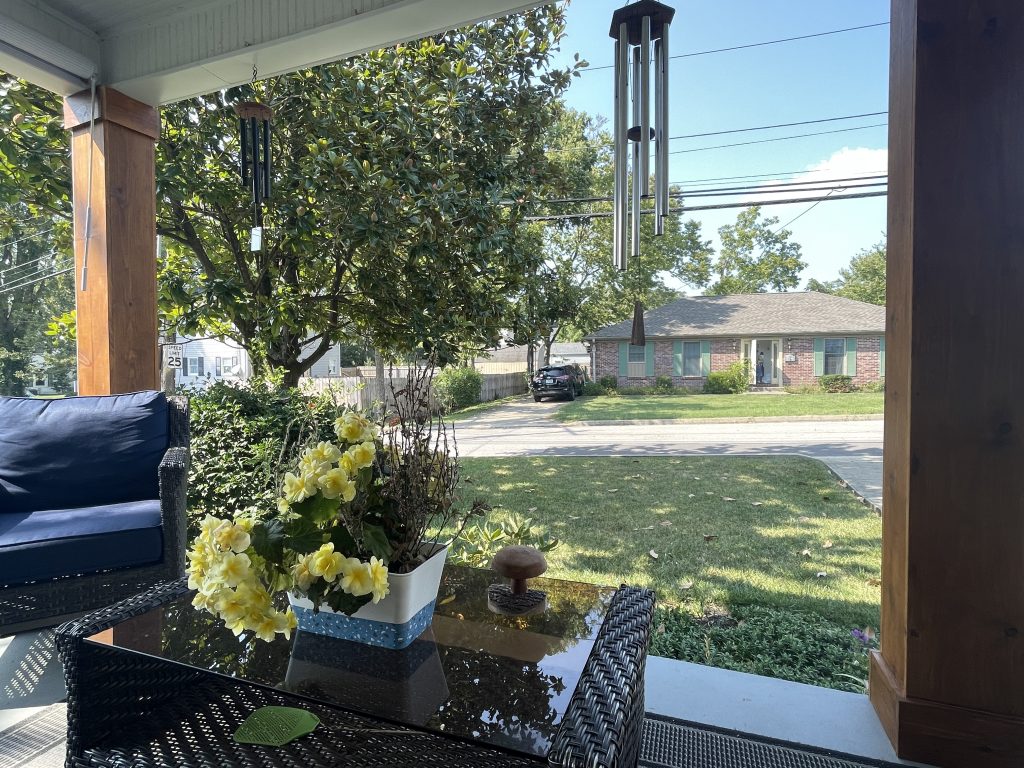
Before you speak of peace, you must first have it in your heart.?
—St. Francis of Assisi?
Being Interruptible
“It is a strange fact,” writes Bonhoeffer, “that Christians and even ministers frequently consider their work so important and urgent that they will allow nothing to disturb them. They think they are doing God a service in this, but actually they are disdaining God’s ‘crooked yet straight path.’”
This is us
We all must admit that our secret inner attitudes are often cruel, attacking, judgmental, and harsh. The ego seems to find its energy precisely by having something to oppose, fix, or change. When the mind can judge something to be inferior, we feel superior. We must recognize our constant tendency toward negating reality, resisting it, opposing it, and attacking it on the level of our mind. This is the universal addiction.
Richard Rohr
the Cross
“the resurrection does not eradicate the crucifixion.” The Christians chose the most hideous of symbols to identify who they were. They chose a cross, not a stone that had been rolled away. “There was only one reason to carry a cross in the Roman Empire: to certify Rome’s absolute power and any resisters abject weakness.” No wonder the Greeks and Romans saw the Christians as a weak people with a weak Messiah.
The Gospels are not ashamed to show Jesus’s ‘weak’ side; they do not mythologize him into some airbrushed superhero or fantasize a utopian version of his kingdom. The Gospels render the highest, most honest honor to God and Jesus, merited by their solidarity with a struggling people, not a perfunctory or begrudging honor like that coerced by narcissistic Caesars and other strongmen.
Scot McKnight
Sexism
“Sexism is a misuse of power in which men hold power over women and use that power for themselves while diminishing and restricting women’s God-given power.”
Heather Mathews
…the kingdom that is coming in fullness. A kingdom that is “a new, reconciled humanity where there are no more barriers based on ethnic, socioeconomic, or gender distinctions.” I genuinely, and with tears in my eyes, long for this day. The New Testament shows us how Jesus came to create a new humanity, one devoid of lines drawn around race, gender and economic status. A church where slaves could function as elders, women could teach and shepherd, and the poor are sought out for their perspective on the kingdom.
Matthew’s work reminds us that a theology of antisexism is a theology that truly believes men and women are created equal. Jesus was not sexist. He did not accuse women of seeking power, in fact his harshest words were for the men who used their power to restrict others in the kingdom.
Karen Fletcher Smith
The Professor said to write what you know
– Taylor Swift
Lookin’ backwards
Might be the only way to move forward
Present in Liturgy
We are not an audience in the Liturgy. We are not gathering information in order to make a decision. We are in the Liturgy to live, breathe, and give thanks, in the presence of God.
The struggle for a Christian in the modern world is to renounce the life of the audience. Within the audience we experience a deep estrangement from God. We are always “watching” from somewhere else, always engaging the false self with its criteria of judging, weighing, deciding. The world becomes a beauty contest but never a wedding. Modernity creates false distinctions. We are anxious that if we are not “part of the show,” then we are somehow being excluded. “Where are the women?” a visitor asked, commenting on the group within the altar. Ironically, they were spread throughout the Church, participants in the marriage of heaven and earth that is the Divine Liturgy. “Watching” one of their gender “perform” would make none of them more present, only somehow satisfied in the judgment of the audience that some abstract sense of inclusion had been satisfied.
Father Stephen Freeman
Forgiveness
Among the most powerful of human experiences is to give or to receive forgiveness. I am told that two-thirds of the teaching of Jesus is directly or indirectly about this mystery of forgiveness: God’s breaking of God’s own rules. That’s not surprising, because forgiveness is probably the only human action that reveals three goodnesses simultaneously! When we forgive, we choose the goodness of others over their faults, we experience God’s goodness flowing through ourselves, and we also experience our own goodness in a way that surprises us. That is an awesome coming together of power, both human and divine.
Richard Rohr
Parallels
(Praise And worship)
Back in February, the music historian Ted Gioia wrote an essay on the state of American culture. He argued that many creative people want to create art (work that puts demands on people), but all the commercial pressures push them to create entertainment (which gives audiences what they want). As a result, for the past many years, entertainment (superhero movies) has been swallowing up art (literary novels and serious dramas).
My grandfather, in his 90s, often told me he didn’t want to continue living. He once looked me in the eye and told me that my weekend visits were wonderful but didn’t outweigh the pain he suffered all week. He also felt guilty about the burden he put on his own family. With no legal options, he finally chose to undergo an elective surgery because a surgeon cautioned it was quite risky. The surgery was successful, and my grandfather woke up furious. When he got a serious infection a few weeks later he pumped his fist, and died soon after.

View from the Front Porch
[adapted from a post in2020]

“the sky is falling” is currently the weapon of choice. If you are unfamiliar with the story of Chicken Little, you can read it HERE.
The pressing question for me is, how should I respond to “the sky is falling”? Chicken Little is helpful.
- When encountering an unexplained and/or unanticipated threat (acorn), resist knee-jerk assumptions. Gather facts necessary to determine the magnitude of danger.
- Seek reliable counsel for confirmation and appropriate action.
- Only when confident of the reality and magnitude of threat, and, having clarity necessary for a response, should you alert others.
- When fearful We are most vulnerable to seduction we would never consider otherwise.
- Resist the temptation think the worst.
The moral of the story is not to be a “Chicken” but to have courage.
A very early example containing the basic motif and many of the elements of the ” chicken little tale” is some 25 centuries old and appears in the Buddhist scriptures. the Buddha, upon hearing about some particular religious practices, comments that there is no special merit in them, but rather that they are “like the noise the hare heard.” He then tells the story of a hare disturbed by a falling fruit who believes that the earth is coming to an end. The hare starts a stampede among the other animals until a lion halts them, investigates the cause of the panic and restores calm. The fable teaches the necessity for deductive reasoning and subsequent investigation.
Wikipedia
We need a lion.